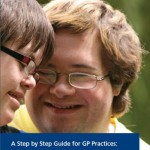
People with learning disabilities have low take-up rates for health promotion or screening activities. Work in the south west of the country to look at reasonable adjustments a couple of years ago resulted in a number of recommendations for local action along with recommendations to the national cancer screening programmes regarding the identification of people [read the full story…]









